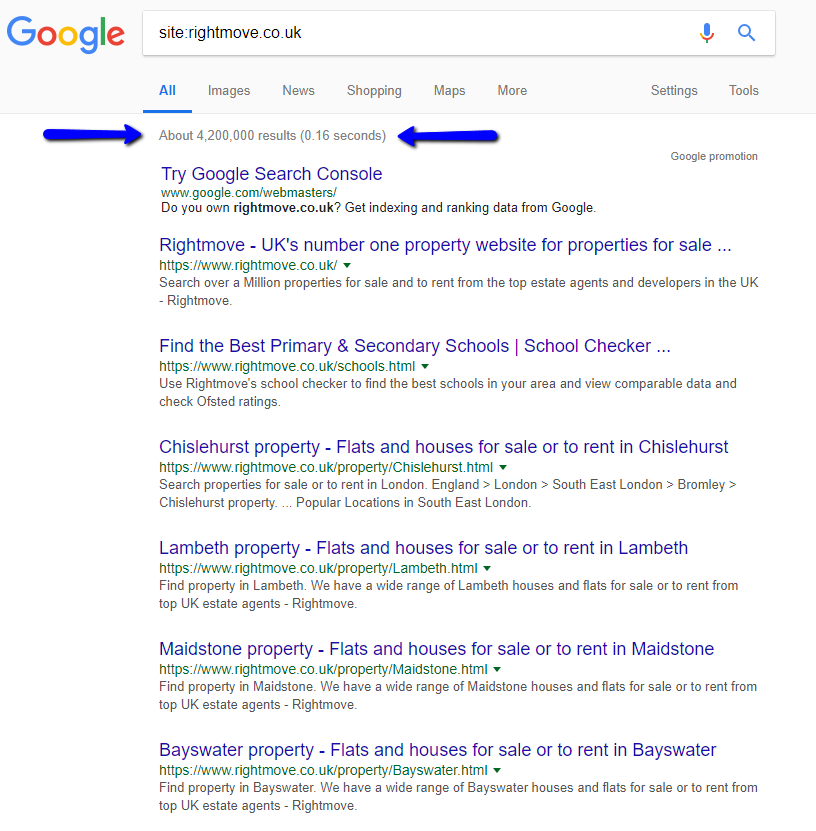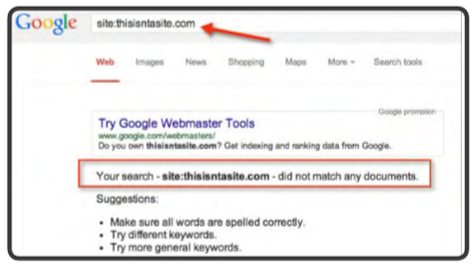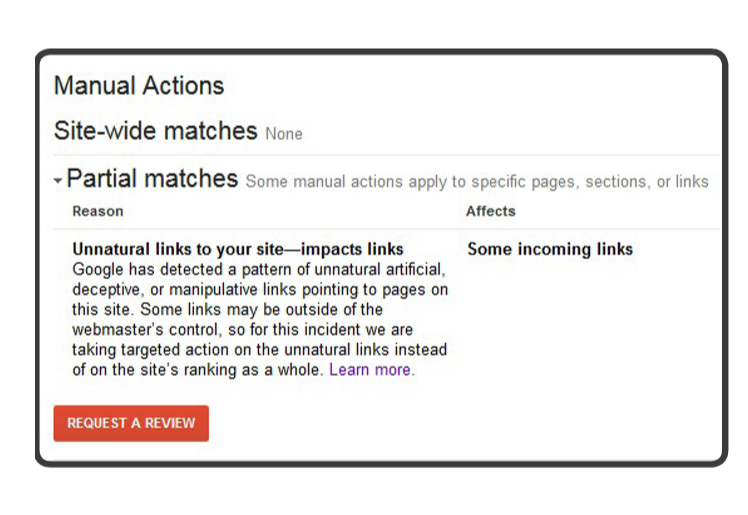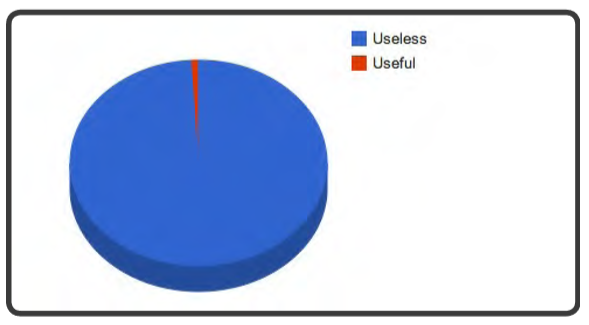This guy was MAD.
Despite months of creating content, building links, doing on-page SEO and keyword research on his website and blog, he was getting ZERO love from Google.
The only way he could describe it to us was to say:
“I don’t think I’m even IN Google!”
Five minutes later, we spotted the problem. It wasn’t that he wasn’t IN Google. It was quite the opposite. But more on this in a second.
Firstly, let’s look at how we discovered the problem.
Step 1. The two-step DIY SEO audit
Forget keyword research, content marketing and link building… for now.
None of it matters if you have problems in the Google Index.
Take five minutes to go through this exercise with us, and your business will thank you.
Type the site: operator into the Google search box
Visit google.com and type the following:
site:domain.com
Where domain.com is your domain. Do NOT include any spaces, the http:// or www. — it’s important to type it exactly as shown above.
Here’s what the site: operator query looks like for rightmove.co.uk:

Press ENTER to search, and you’ll see Google search results that are restricted to your website only.
In other words, these are the pages that are eligible to receive search traffic. If it’s not indexed — it won’t receive traffic from Google.
Step 2. View the # of results Google returns
At the top of the results page you’ll see the number of results.
Here’s what it looks like for rightmove.co.uk:

You’ll have more or less than 4.2 million results in the Google Index.
But here’s the question… are you surprised by what you see in this quick SEO audit? Do the numbers look about right? Are there fewer or more pages indexed than you thought?
Note: Particularly for larger sites, this number is an estimate of the number of pages Google has in its index. But the larger your site, the more important this exercise.
Ok, let’s look at some what ifs…
Step 3. What if I don’t see anything in the Google Index?
So, you see no results…

Don’t panic just yet.
First, make sure you typed the site: operator correctly into Google (see step 1).
Then, ask yourself these questions:
Have I done anything to cause Google to ban my website from the Google Index?
Could manipulative link building, cloaking, or hidden text be to blame?
Action Items: Check Google Webmaster Tools for notifications under the MANUAL ACTIONS report.
If you see a penalty, consider a Google reconsideration request.

Am I restricting access to Google and/or other search engines? It’s possible that you or someone else has acted to keep search engines out of your website.
Action Items: Check your robots.txt file by visiting domain.com/ robots.txt where domain.com is your domain. Make sure that you are not restricting access to search engines.
For example, the following syntax in your robots.txt file will restrict access to all search engines:
User-agent: *
Disallow: /
Click here for more information about interpreting the robots.txt file
Secondly, if you’re using WordPress, make sure you have the following setting under SETTINGS > READING unchecked:

Why would search engines be restricted from the entire site? Usually this is because the developer has restricted access while the website was being built and never took the restrictions out when the website was completed.
It happens more than you think.
Step 4. What if I don’t see all my pages in the Google Index?
Remember that, especially for larger sites, the Google Index is only an estimate.
That said, crawling through the search results from the site: operator can reveal severe problems with the crawlability of your website.
For example, you might find that entire directories (folders) of your website are not in the index, or that critical pages are not in the index.
You can check whether specific pages are in the Google Index using the site: operator as well.

Action Items: Check your robots.txt file to make sure that you don’t have entire directories on your website restricted. For example, the following syntax in your robots.txt file will restrict Google’s access to all pages in the /products/ folder:
User-agent: Google
Disallow: /products/
Secondly, use a tool like Copyscape to avoid having issues with duplicate content. Google does not want to include multiple copies of the same content in their index. If you have duplicate content on your own website or on other websites across the web, Google may choose to drop your page(s) from the index.
Lastly, check the source code of the page(s) in question and make sure that you don’t see a ‘no index’ directive on that page. It will look like this:
<META NAME=”ROBOTS” CONTENT=”NOINDEX”>
With this tag in the source code of the page, Google (and other search engines) will not index the page.
Step 5. What if I see too many pages in the Google Index?
Having multiple pages in the Google Index that have no value can be just as damaging as the other scenarios we’ve talked about.
In fact, here’s the rest of the story from the opening of this article…
This client’s website contained a plug-in that was used to build pages for events conducted by the business.
Sounds great, right?
Not so much. This plug-in had generated a page on his website for every day for the next 30 years.
When I did the site: operator, we found over 10,000 event pages that contained zero content with the same title tag and meta description. We counted approximately 100 pages on the site that contained high-quality content which we would want Google to index.
As a result, the website looked like this to Google:

To cut a long story short, Google doesn’t like that. We shut off the plug-in (and did some 301 redirects), and their SEO improved almost immediately.
Suddenly, Google could see the valuable pages on this website.
Action Items: Make sure you have not been hacked. Unfortunately, this is the most common reason for finding a large number of pages in the Google Index.
Step 6. Be sure to do this…
Perform the site: operator function and browse through the pages in the Google Index.
Look for anything out of the ordinary and consult an SEO professional if you see anything that might be harmful. Or, if you’re feeling confident, fix it yourself.
Whatever you do, TAKE ACTION.
Got a question?
Want to grow your agency?
Book a free marketing consultation with our MD Nelly Berova
Tags
SEO
